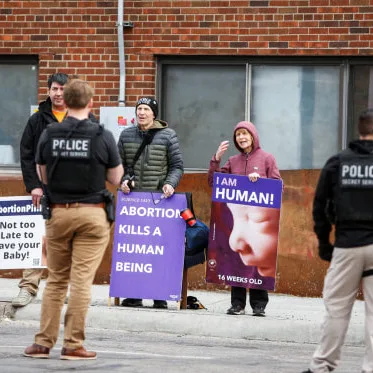In a significant ruling, the U.S. Supreme Court has chosen not to hear a case challenging the legality of protest zones outside abortion clinics. This decision stems from an appeal made by a coalition known as Coalition Life, which argued that the Massachusetts law establishing these zones infringed on free speech rights. The law in question prohibits protesters from gathering within 35 feet of the entrances to abortion clinics.
Justice Clarence Thomas, along with Justices Samuel Alito and Neil Gorsuch, expressed dissent regarding the Court’s decision to reject the appeal. In his dissent, Thomas stated, “The First Amendment is not a license to harm.” He emphasized that the law effectively serves as a barrier to individuals wishing to express their views and assist women considering abortions.
The establishment of these protest zones was originally implemented as a means to reduce harassment and intimidation of women seeking medical care. During the Supreme Court’s consideration of the case, numerous advocacy groups and pro-choice organizations weighed in, supporting the law as essential to protecting patients accessing reproductive health services. Those in favor of the protest zones highlighted that they help ensure a safe environment for women, free from aggressive and confrontational activities that often accompany anti-abortion protests.
In their arguments, Coalition Life representatives insisted on their right to free speech and the traditional public access to sidewalks and streets. However, the Court’s refusal to overturn the Massachusetts law reinforces the state’s ability to regulate protest activities in sensitive areas, especially concerning healthcare.
This ruling falls within a broader context of ongoing debates surrounding reproductive rights in the U.S., particularly following the Supreme Court’s decision to overturn Roe v. Wade, which has led to varying laws across states regarding abortion access and the legal rights of protestors.













